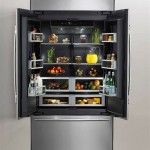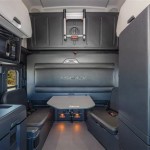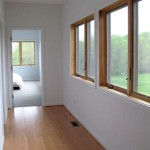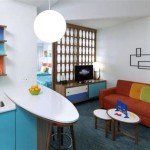Essential Aspects of Interior Designer Offices
Interior designers create functional and aesthetically pleasing spaces that enhance people's lives. Their offices are an important part of their work, as they are where they meet with clients, develop concepts, and manage projects. Here are some essential aspects of interior designer offices:
Location and Accessibility:
The location of an interior designer's office is important for both clients and employees. It should be easily accessible, with convenient transportation options. Proximity to potential clients and other industry professionals is also desirable. Consider the visibility and curb appeal of the office to make a positive impression.
Layout and Functionality:
The layout of the office should support the interior designer's workflow. There should be dedicated spaces for client consultations, design work, sample storage, and administrative tasks. The space should flow well, allowing for efficient movement and collaboration. Natural light is highly valued, as it creates a positive work environment.
Aesthetics and Ambiance:
The interior design of the office itself should reflect the designer's style and principles. It should create an inspiring and professional atmosphere that showcases their work. The use of color, materials, and textures should be considered carefully to create a cohesive and inviting space for both clients and employees.
Equipment and Technology:
Interior designers rely on specialized equipment and technology to perform their tasks. This includes computer-aided design (CAD) software, samples, and materials. The office should be equipped with the necessary hardware and software to support these functions. Additionally, consider incorporating smart home technology to enhance convenience and efficiency.
Collaboration and Networking:
Interior designers often collaborate with other professionals, such as architects, contractors, and vendors. The office should provide spaces for meetings, brainstorming sessions, and networking events. Consider creating a dedicated area for collaboration, with comfortable seating and presentation equipment.
Professionalism and Comfort:
The interior designer's office is a reflection of their professionalism. It should be clean, well-maintained, and organized. The space should also be comfortable for both clients and employees, with ergonomic furniture and amenities that promote well-being. Consider incorporating biophilic elements to create a connection with nature and reduce stress.
By carefully considering these essential aspects, interior designers can create offices that inspire creativity, facilitate collaboration, and enhance their overall productivity and success.
Explore The Offices Of Top Interior Designers And Architects
The 7 Best Materials For A Modern Office Interior Design
Office Interior Design Considerations Hatch
10 Best Office Interior Design Services In 2024 Decorilla
Essential Checklist For Your Office Interior Design Decorilla
K Behind The Scenes Into These Interior Designers Work Spaces Designed
Top 10 Office Interior Design In The Architects Diary
These Interior Designers Have Completed Their Own Office So Let S A Look At What They Did
Office Interior Designer Create An Amazing Modern Workspace 2024
K Inside The Offices Of Some Interior Design S Most Famous Designers Designed Office Studio








